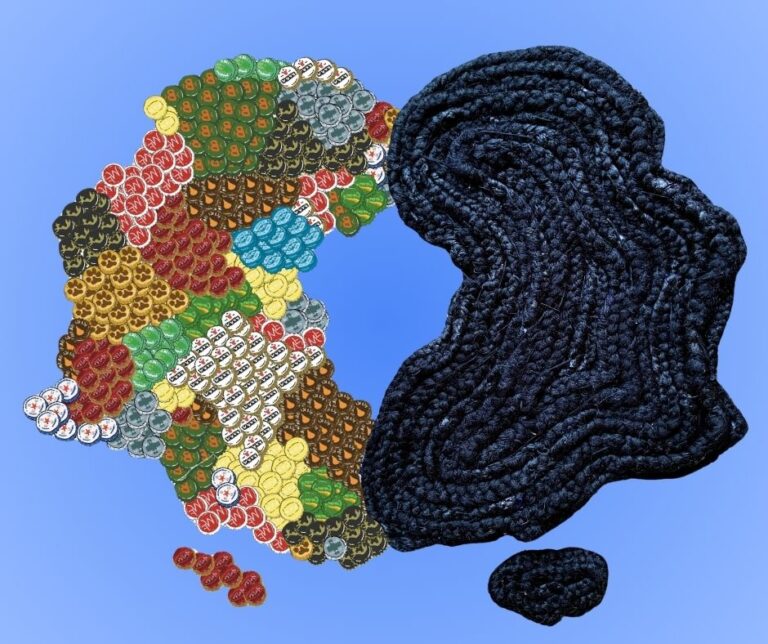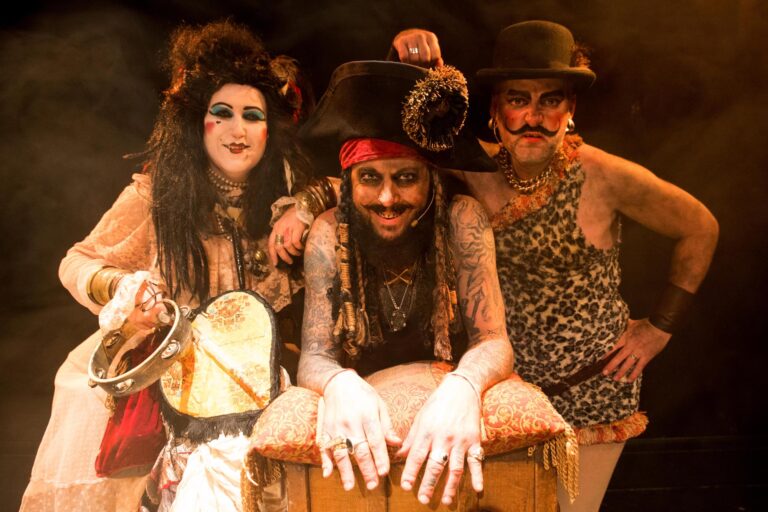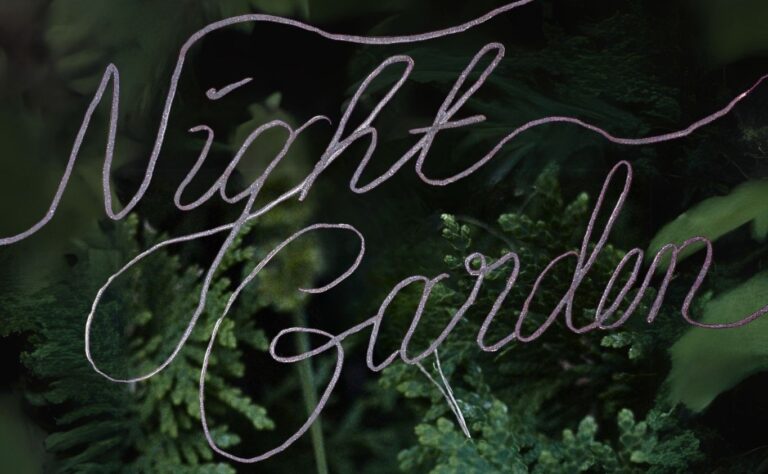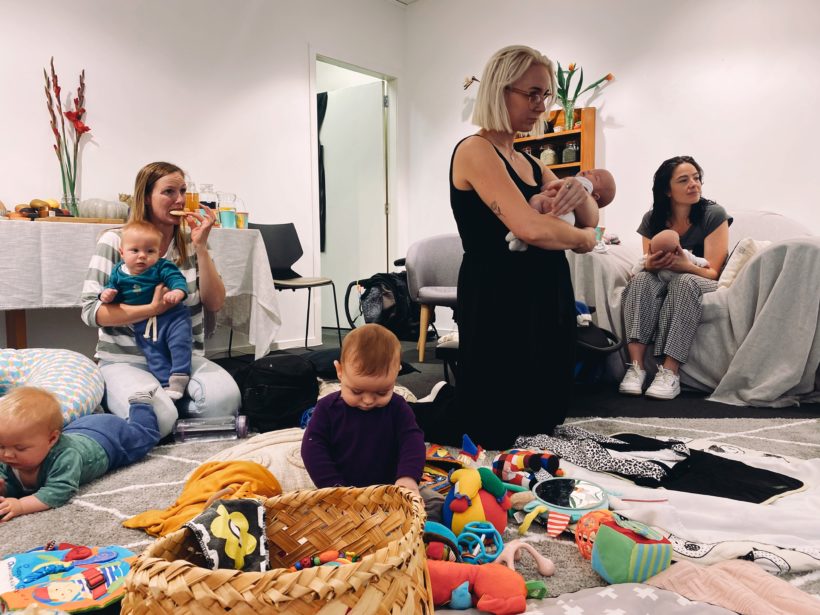
Artist and birth worker Holli McEntegart, presents Inhabit from March 7th–April 1st 2023 at the Fale Community House, 50a Rosebank Road, Avondale in Tāmaki Makaurau.
Inhabit will be open Tuesdays–Saturdays, 10am–3pm daily from March 7th–1st April, 2023.
There will be scheduled workshops most mornings at 10:30am, followed by a conversation with shared kai, tea and postpartum centric herbal infusions – that are good for everyone!
Folks are encouraged to follow Inhabit on Instagram for programming announcements: https://www.instagram.com/inhabitpostpartum/
Workshops are free but by sign up only VIA https://www.inhabitpostpartum.co.nz/auckland2023
Inhabit in the Whau is proudly supported by the Whau Local Board and the Auckland City Council Creative Communities Scheme.
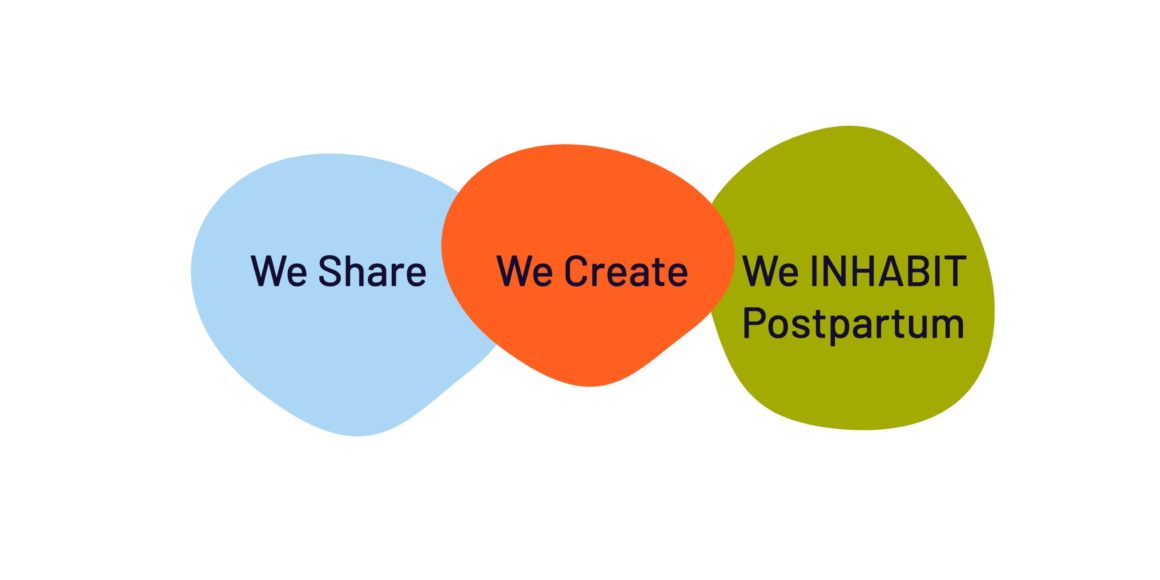
ABOUT INHABIT
Inhabit is a public art project, a site to explore traditions of care within birthing communities in Aotearoa. Inhabit will be opening its second community postpartum care centre and art space in the Whau for four weeks during March.
Located in the heart of Avondale, Inhabit weaves connections between traditions of art-making and story sharing in the home, while highlighting the diverse range of postpartum experiences many folks carry with them as they journey through new parenthood and family building. Workshops, classes and community offerings will be available free of charge and are inclusive of all sexual orientations and gender identities. You do not need to be a mother or even a parent to attend and enjoy our project space. Inhabit is warm and nurturing and a safe, inclusive space that is accessible and welcoming to all.
“There is one thing we all have in common; we have all been born.” – Holli McEntegart
Holli McEntegart describes herself as a social practice artist and full spectrum doula. Inhabit combines both practices to provide a social space for new parents to come together to share their postpartum experiences within a context of care and social activism. Placed at the intersection of birth and reproductive justice activism, the project is considered a ‘living artwork’, making visible the diverse lineage of postpartum traditions and practices, which are often concealed by the medical industrial complex. This creative practice engages critically with how community, cultural and whānau postpartum care has been hidden in Aotearoa and explores new models of community postpartum care, with the aim of centering intergenerational knowledge sharing, healing, and community building.
“As a society we focus so much on our birth stories, our stories of becoming, but what happens afterwards?” asks Holli. “How many of us know our own postpartum stories, or those of our ancestors?”
Over the last decade, Holli McEntegart has lived and worked as a social practice artist and doula in New York and Los Angeles, returning to Aotearoa at the beginning of the Covid epidemic. Her current work on motherhood is central to her art practice, which focuses on re-centering and healing through lived experience. This work is underpinned by a desire to unpack the complexities of sometimes overlooked and devalued human experiences through how mothers and their larger support networks may collectively offer new visions and actions for change.
Postpartum is an aspect of the human experience that is often invisible in the domain of art. The artwork, Inhabit, becomes a site of human social exchange between mothers, a doula and the public, aiming to make visible community, cultural and whānau approaches to postpartum care.
At Inhabit, Holli will be making healing soups, broths and teas throughout the duration of the exhibition project. This kai will be shared with visitors and public in the style of a public kitchen. There will be a range of classes and workshops from lactation support, babywearing workshops, kangatraining, birth story processing, and new parent support groups. Our kaupapa is to centre intergenerational knowledge and community building by creating healing, warm inclusive spaces.
The space will be open on a walk-in/drop-in basis, as well as offering more intimate and focused workshops that can be booked online. The programming and workshops will be facilitated by local perinatal professionals, including birth and postpartum doulas, lactation consultants, pelvic floor specialists and therapists, as well as artists and makers. Full programme will be updated here
Over four weeks the project will grow and expand as visual and text-based echoes of intimate postpartum exchanges installed on the walls within the space. These texts were first gathered during the first public iteration of Inhabit in Wellington] in 2022, they will continue to grow and create an archive of postpartum stories that weave themselves across the motu.
“It can be both shit and wonderful, there is space for all of those feelings.”
Love Notes, 2022 (post-it note from participant at Wellington Inhabit pop-up space)
The post-it note wall will evolve in the Whau space with participants and the public invited to add to the wall, messages to their past or future selves, postpartum friends and whānau.
My aspiration for the project is to create a room that is a site of exchange, reflection, witnessing and encouragement. A place for the intimate sharing of stories. Inhabit offers a space to come together, share and learn as a community how to better care and support people postpartum. Not just through the physical healing from birth, but through the psychological, emotional, hormonal, and social transition of postpartum that every new parent and growing family experiences.
– Holli McEntegart
What if we were to truly INHABIT Postpartum?
“Postpartum” refers to the “time after childbirth”. Whether you have delivered a baby, experienced a miscarriage, abortion or other pregnancy loss, you are in postpartum and should receive support for your physical and emotional healing.
Research shows us that when birthing people are supported from birth, through postpartum and beyond, they experience faster physical and emotional healing, have reduced rates of postpartum depression and anxiety, better infant feeding outcomes, and an easier transition into new parenthood. It also shows us that when we show up and care for each other, we build stronger communities with better health outcomes.
Through our INHABIT Postpartum exhibition spaces and online programming, our goal is to offer birthing and postpartum families’ free community postpartum support, education and accessible care to build happier, healthier and safer families in Aotearoa.
*“Postpartum” refers to the “time after childbirth”. Whether you have delivered a baby, experienced a miscarriage, abortion, or other pregnancy loss, you are in postpartum and should receive support for your physical and emotional healing.
** “Postpartum depression affects up to 15% of mothers after they have given birth, with lack of support given as a factor.” Sourced from: depression.org.nz
“Maternal suicide in NZ is five times higher than in the UK with Maori women overrepresented.” Sourced from: hqsc.org.nz
ABOUT HOLLI McENTEGART
Holli McEntegart is the Founder and Director of Inhabit, she is an interdisciplinary artist and full spectrum Doula based in Tāmaki Makaurau. You can read more about her creative projects here www.hollimcentegart.com and dive into her Doula work here www.deararlo.co.nz
Holli is passionate about birth and postpartum care, she is an island named Mother to two boys, aged 4 and 1, she has been a Full Spectrum Doula since 2018 and is a Certified Lactation Counsellor. She is honoured to support folks as they traverse the wild landscape of new parenthood and believes all birthing bodies and spirits should be supported, nurtured and truly validated throughout the postpartum experience.
Holli’s move back to Aotearoa in 2020 amid the global pandemic, opened her eyes to the inequities within our healthcare system. In particular, the horrific lack of maternity and postpartum care, support or funding available to birthing families having a direct effect on postpartum mental health as well as the general health and wellbeing of our whānau and communities.
Guided herself by Celtic and Pākehā traditions, Holli wishes to expand access to postpartum health resources that support our communities, whilst centering conversations about how traditional healing practices are carried with us or passed down as oral history. How are patterns of care surviving colonisation and migration? How can we better learn from them?
